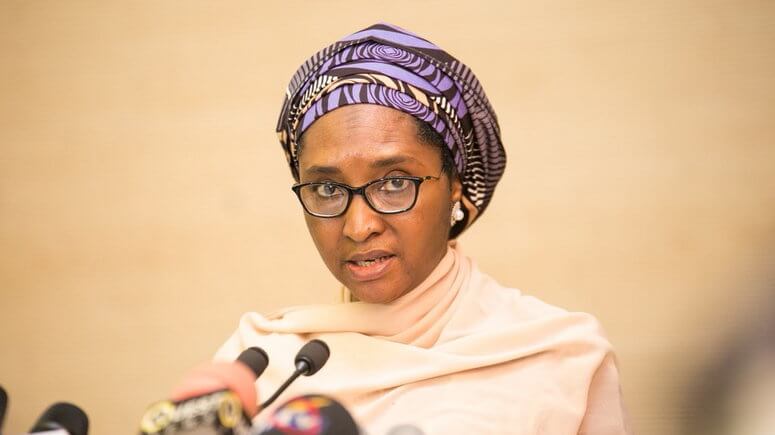The Minister of Finance, Budget and National Planning, Zainab Ahmed, has said the capital market is key to the development of the Nigerian economy.
She said that past experiences have shown that the Nigerian capital market has been quite supportive in providing the necessary funds needed to finance government’s needs.
Advertisement
The Minister noted that the capital market serves as an important channel through which government budget deficits and the economic infrastructure deficits could be financed.
She said the government is committed to introducing more of these instruments in partnership with the capital market to finance projects for economic growth.
She spoke at the fifth Budget Seminar organised virtually by the Securities and Exchange Commission with the theme ‘Financing Nigeria’s budget and infrastructure deficit through the Capital Market.’
She said, “The capital market is a room for various programmes and mechanisms that are targeted at aggregating and channelling long term capital for businesses and development.
Advertisement
“The Nigerian capital market has been doing this for many decades and has the potentials to do more. I want to urge the capital market participants and operators to consider retail investments to give opportunity to the Nigerian citizens to invest within the capital market in an easy and simple way.’
She pointed out that there was an urgent need to raise infrastructure that are required for creating enabling environment, in which businesses and citizens of the country can thrive.
Ahmed said, “This need is further underscored by the current global pandemic with its attendant negative effects on our daily economic and social activities.
“In order to provide the necessary infrastructure and still continue to meet other immediate expenditure needs, government often adopts deficit budgets which have to be financed through borrowing.
“Nigeria needs to spend and spend now more on infrastructure and other capital projects.”
Advertisement
The Director General of the Debt Management Office, Patience Oniha said that it is unsustainable for Nigeria to service debt using revenues generated through other means.
Oniha stressed the need for infrastructure built with borrowed funds to generate revenue to service the debts.
With the country’s N31trn ($85.897bn) debt profile, the DG lamented that the SUKUK N362.6bn was not serviced from the projects.
The DMO offered the SUKUK in three trenches of N100bn in September 2017, N100bn in December 2018 and N162.6bn in 2020.
The N162.6bn proceeds from the 2020 SUKUK issuance was channeled towards financing 44 critical Road Projects across the Six geopolitical zones of Nigeria.
“We have done the Sukuk, for instance, but government is the one servicing the debt of those Sukuk,” News Agency of Nigeria quoted the DG.
Advertisement
According to Oniha, the roads and projects funded through the SUKUK have not been used to service the obligation.
She said, “They (the debts) are not being serviced with revenue from those sources (infrastructure).
“ I think that when we are talking about those innovations like revenue, bonds and all that, we should be talking about policies to ensure that the projects that we financed generate revenue.”
The Director General of the SEC, Lamido Yuguda said 42 per cent of the N5.6trn deficit would be financed using domestic sources, adding that the capital market would be leveraged to financing the deficit.
He said, “The 2021 Budget proposes a deficit of N5.6trn, and 42 per cent of this will be financed using domestic sources. It is expected that the capital market will be leveraged to obtain this financing and also that the impact on infrastructure development of the country as well as the general economic conditions will be positive.
“In addition, we also believe that our capital market has the capacity to roll out innovative products to support Nigeria’s infrastructure needs and financing.
“This is necessary for us as a country to be able to effectively compete with the rest of the world”.
Also speaking, Oscar Onyema, the Chief Executive Officer of the Nigerian Stock Exchange, said the Exchange would create the needed environment for infrastructure development.



